Disclosure: This article contains affiliate links. We may earn a commission from purchases at no extra cost to you, which helps our travel content.
The moment you step off the plane at Indira Gandhi International Airport, Delhi greets you with its distinctive duality—ancient history pulsing beneath the surface of a modern metropolis driving India's economic engine. As someone with paternal roots in Kerala who's spent decades traversing the globe covering sporting events, my relationship with India's capital is complicated yet profound. Delhi isn't merely another pin on my travel map; it represents a convergence of my professional journey and ancestral heritage. This sprawling urban center demands a different playbook than my usual rainforest expeditions or sporting event coverage. For the executive traveler, Delhi presents unique challenges and rewards that require strategic navigation—much like a test cricket match where patience and tactical thinking ultimately prevail over brute force. Whether you're finalizing investments in Gurugram's glass towers or negotiating partnerships in historic Connaught Place, this guide offers the cultural context and practical wisdom to transform your business trip into a meaningful engagement with one of Asia's most dynamic capitals.
Navigating Delhi's Business Districts
Delhi's commercial geography requires strategic understanding before you dive into meetings. Unlike the concentrated business districts of Singapore or Hong Kong, Delhi's corporate landscape spreads across multiple nodes, each with distinct characteristics and industries.
Connaught Place (CP), with its colonial-era circular design, houses many international firms, banks, and airline offices. The stately white colonnades contain everything from century-old establishments to sleek modern offices. For traditional Indian conglomerates and government liaison work, this central hub remains indispensable.
Southward lies Nehru Place, once the undisputed IT hub of Delhi, now reinventing itself with co-working spaces and tech startups. While showing its age, it maintains significance for technology-focused meetings.
The true corporate powerhouse today is Gurugram (formerly Gurgaon), technically in neighboring Haryana state but functionally part of the National Capital Region. This forest of glass-and-steel towers along the Delhi-Jaipur highway hosts multinational corporations, consulting firms, and financial services. The Cyber City and Golf Course Road areas represent India's answer to global business parks.
Noida, across the Yamuna River in Uttar Pradesh state, forms another satellite business center with strengths in manufacturing, media, and increasingly, technology services.
Moving between these districts requires planning. Delhi traffic doesn't follow the predictable patterns I've observed in Wellington or even the organized chaos of Bangkok. I've missed crucial meetings by underestimating travel times between districts. My recommendation: schedule no more than two district changes per day and allow 60-90 minutes between meetings in different areas.
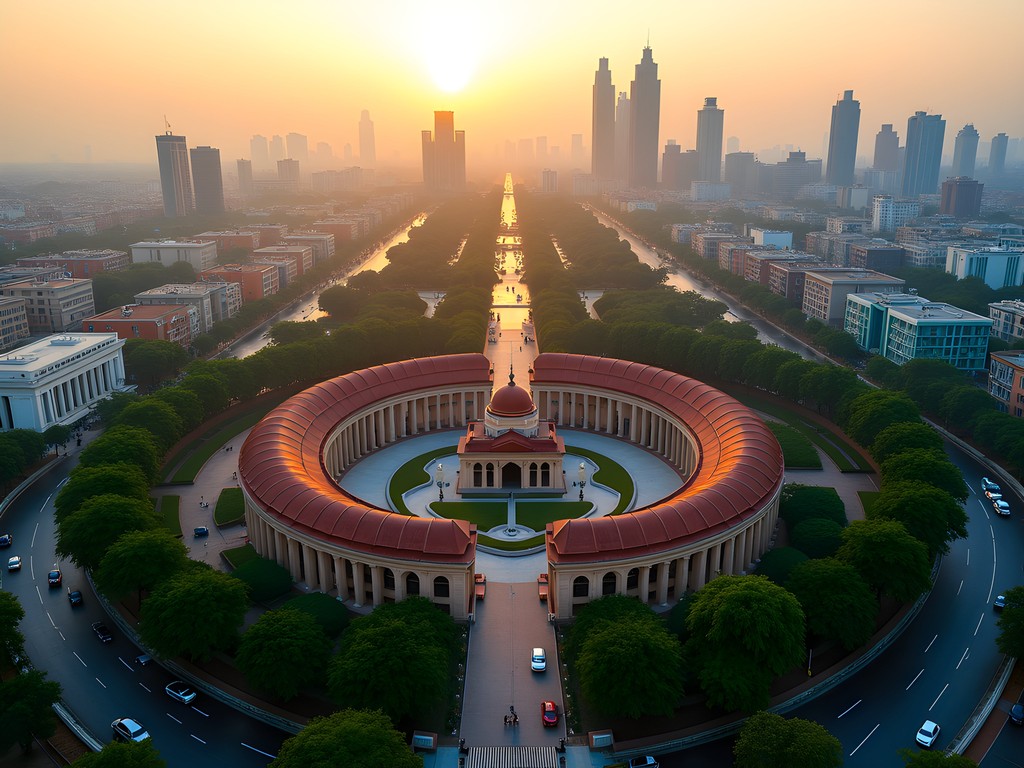
💡 Pro Tips
- Use the Delhi Metro to avoid traffic between business districts, particularly the Yellow Line connecting Gurugram to central Delhi
- Schedule meetings within the same district for morning or afternoon blocks to minimize travel
- Consider helicopter transfers for urgent inter-district movement—several services now connect Gurugram heliports with central Delhi
Luxury Accommodations: Where to Base Your Operations
Selecting the right accommodation in Delhi isn't merely about comfort—it's about establishing an effective command center for your business operations. Location, services, and cultural context all play crucial roles in this decision.
For those focusing on government relations or central Delhi business, The Oberoi New Delhi remains my preferred base. Following its comprehensive renovation, this institution now balances its heritage gravitas with contemporary functionality. The business center operates 24/7 with staff who understand diplomatic protocol and government documentation requirements—invaluable for regulatory work. Their concierge connections can secure meetings that might otherwise take weeks to arrange.
In Gurugram, The Leela Ambience stands as my recommendation for executives seeking proximity to the Cyber City corporate hub. Their Executive Club Rooms provide the ideal environment for preparation and recovery, featuring ergonomic workstations that have saved my back during marathon report-writing sessions before presentations.
For longer assignments, consider The Lodhi (formerly Aman New Delhi). Its residential atmosphere and larger suites accommodate extended stays without the claustrophobia that conventional hotels can induce after weeks. The private plunge pools offer remarkable recovery potential after intense negotiation days.
Aeracity in Noida hosts the newer Taj property that serves as an excellent base for those working with media companies or manufacturing concerns in that district.
Whichever property you select, leverage their business services fully. Delhi's luxury hotels maintain impressive networks of local contacts and fixers who can solve problems that would otherwise consume your valuable time. I've had hotel staff arrange everything from emergency document notarization to specialized technical equipment for presentations when my own equipment failed.
One crucial consideration: while five-star international chains offer consistency, the Indian luxury hotel groups (Taj, Oberoi, Leela) typically demonstrate superior understanding of navigating local business contexts and cultural nuances in ways that can materially impact your business outcomes.
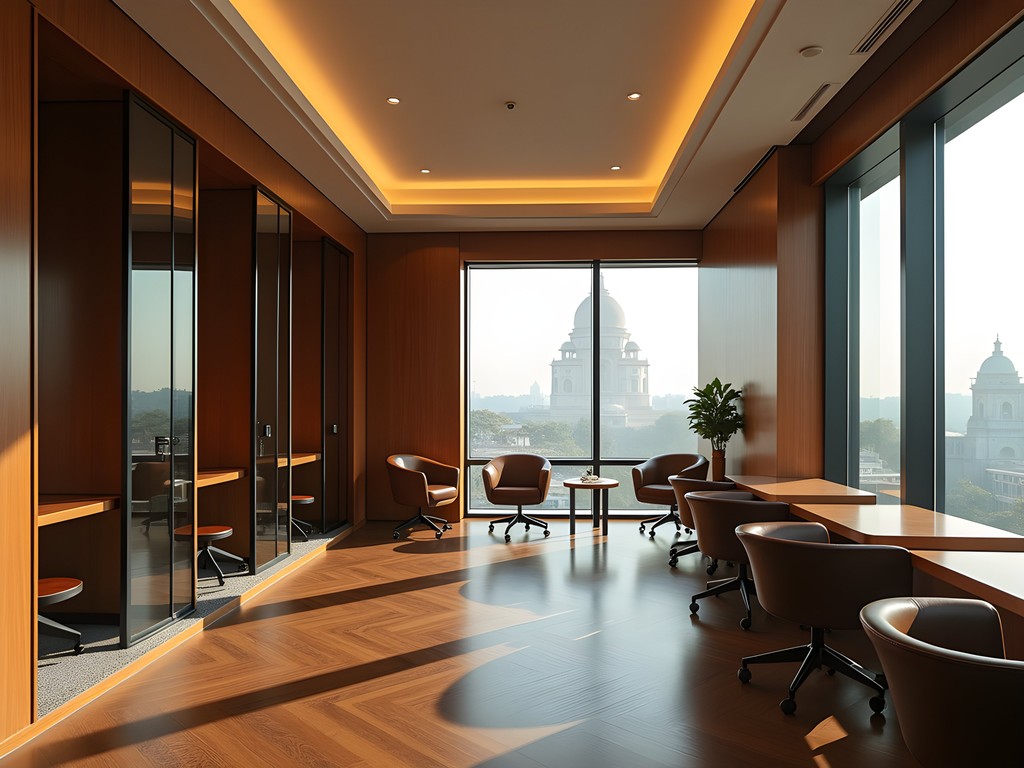
💡 Pro Tips
- Request rooms on higher floors facing away from main roads for better sleep quality—Delhi's noise doesn't abate much at night
- Utilize hotel car services rather than ride-shares for business meetings as they understand corporate timing requirements better
- Consider suite accommodations for longer stays as they often include meeting areas suitable for 4-6 person discussions without additional booking
Cultural Intelligence: The Executive's Edge
My dual heritage—Keralite father and American mother—has taught me that cultural fluency delivers tangible business advantages, nowhere more evidently than in Delhi. The executive who approaches Indian business culture as merely a set of etiquette rules to memorize will miss the deeper currents that influence decision-making and relationship development.
First, understand that time functions differently in Delhi's business environment. While punctuality is increasingly expected for initial meetings, decision processes follow rhythms that might seem frustratingly elastic to Western executives. What looks like procrastination often reflects a holistic decision-making approach incorporating factors beyond the immediately visible business considerations.
Relationship development precedes substantive business discussions. The personal questions that might seem intrusive in Western contexts—about family, educational background, even health—serve as essential foundation-building. I've observed countless negotiations transform after discovering shared connections, whether university alumni status or children attending similar schools.
Hierarchy remains important despite modernization. Senior executives command deference that might seem excessive by Western standards. Observing these protocols demonstrates cultural respect; subverting them rarely produces the egalitarian outcomes Westerners might expect.
Indirect communication presents perhaps the greatest challenge for foreign executives. The direct "no" rare in Indian business discourse doesn't indicate agreement. Learn to recognize subtle signals: "We'll try our best" or "That could be difficult" often telegraph negative responses. Similarly, enthusiasm doesn't automatically signal commitment.
For meetings, bring a quality business card case and sufficient cards. Despite digital transformation, physical card exchange remains an important ritual. Present and receive cards with both hands, and take a moment to read received cards before putting them away.
Dress conservatively but quality-conscious. Delhi's business elite are remarkably attuned to fabric quality, tailoring, and accessories. Your presentation signals your professional standing more explicitly than in many Western contexts.
Finally, demonstrate cultural interest beyond business. Knowledge of cricket (India's passion) provides conversation bridges, while familiarity with regional distinctions shows depth of understanding. Delhi itself represents a cosmopolitan crossroads rather than "typical India"—acknowledging this complexity earns respect.

💡 Pro Tips
- Learn basic Hindi greetings even if your meetings will be conducted in English—the effort demonstrates respect
- Schedule buffer days for important deals—crucial decisions often happen after what Western executives might consider the 'final meeting'
- Bring small, thoughtful gifts reflecting your home country for key relationship-building meetings
Digital Infrastructure & Connectivity Solutions
Delhi's digital landscape presents a study in contrasts that can challenge even the most tech-savvy executive. While the city offers world-class connectivity in specific contexts, gaps and inconsistencies require strategic planning to maintain seamless operations.
Mobile connectivity forms your first line of digital defense. Upon arrival, I recommend obtaining an Airtel or Jio SIM card with a robust data package rather than relying on international roaming. Despite bureaucratic hurdles (bring passport copies and passport-sized photos), local SIMs provide superior coverage and dramatically better value. For extended stays, consider dual-SIM phones with both international and local numbers active.
Wi-Fi quality varies dramatically across venues. Five-star hotels generally provide reliable connections, though speeds may disappoint during peak hours. Coworking spaces like WeWork locations in Gurugram and South Delhi offer the most consistent high-bandwidth options for video conferencing and large file transfers.
Critically, always maintain backup connectivity options. During my coverage of the 2016 India-New Zealand test series, Delhi experienced unexpected network congestion that rendered my primary connection useless before crucial deadline filing. My secondary hotspot saved the transmission.
Cloud security requires heightened attention. India's data localization regulations have evolved significantly, potentially affecting how your organization handles certain information types. Consult both IT security and legal teams before transferring sensitive data.
Power interruptions remain an occasional reality despite improvements. While major business districts and hotels have backup systems, I've found a portable power bank with laptop-charging capability essential for maintaining operations during transitions between venues.
For document handling, maintain both digital and physical copies of critical materials. Despite India's digital transformation, certain processes still require physical documentation, particularly in government interactions or traditional sectors.
Finally, consider cybersecurity protocols. Public Wi-Fi networks—even in upscale venues—should be approached with caution. A premium VPN service provides essential protection when working outside secure environments.

💡 Pro Tips
- Register your local SIM card in advance through your hotel's business center to save time upon arrival
- Schedule bandwidth-intensive activities (video conferences, large uploads) during off-peak hours (early morning or late evening)
- Carry a universal power adapter with surge protection—Delhi's power supply can fluctuate unexpectedly
Balancing Business with Cultural Exploration
The most successful international executives I've encountered in Delhi share one characteristic: they recognize that cultural immersion enhances rather than detracts from their business objectives. Carving out time for deliberate cultural engagement provides context that translates directly to business advantage while offering necessary mental recalibration during intensive work periods.
Even on compressed schedules, early mornings offer opportunities for cultural connection. A dawn walk through Lodhi Gardens provides both physical activity and a glimpse into Delhi's layered history, with 15th-century tombs set among meticulously maintained gardens where locals practice yoga and meditation. The gardens open at 5:00 AM, allowing exploration before your first business breakfast.
Lunches present strategic cultural opportunities. Rather than defaulting to hotel restaurants, consider historic establishments like Karim's near Jama Masjid for authentic Mughlai cuisine. These experiences provide natural conversation points for relationship building with Indian counterparts, demonstrating interest beyond transactional business.
Between meetings, micro-explorations yield disproportionate returns. The Crafts Museum near Pragati Maidan can be meaningfully experienced in under an hour, providing insights into India's artisanal traditions that often inform contemporary business aesthetics and values.
Weekend extensions transform business trips into deeper cultural engagements. A 48-hour addition allows for day trips to Agra (Taj Mahal) or Jaipur, completing the "Golden Triangle" that contextualizes Delhi's position in India's historical narrative.
For exploring Delhi's complex urban landscape, I recommend engaging qualified guides rather than self-navigation. A compact camera rather than a smartphone allows for more respectful photography in sensitive areas while capturing higher quality images of your experiences.
During my last extended Delhi assignment, I established a pattern of daily cultural touchpoints—whether visiting a different historical monument each evening or exploring specialized markets like Dilli Haat for handicrafts. These experiences provided crucial mental space from intense negotiations while deepening my understanding of the cultural context informing my Indian counterparts' decision-making frameworks.
Remember that Delhi's remarkable religious diversity offers windows into multiple traditions. The Lotus Temple (Bahá'í House of Worship), Jama Masjid, Gurudwara Bangla Sahib, and the ISKCON Temple represent different faith traditions that have shaped Indian business ethics and practices.
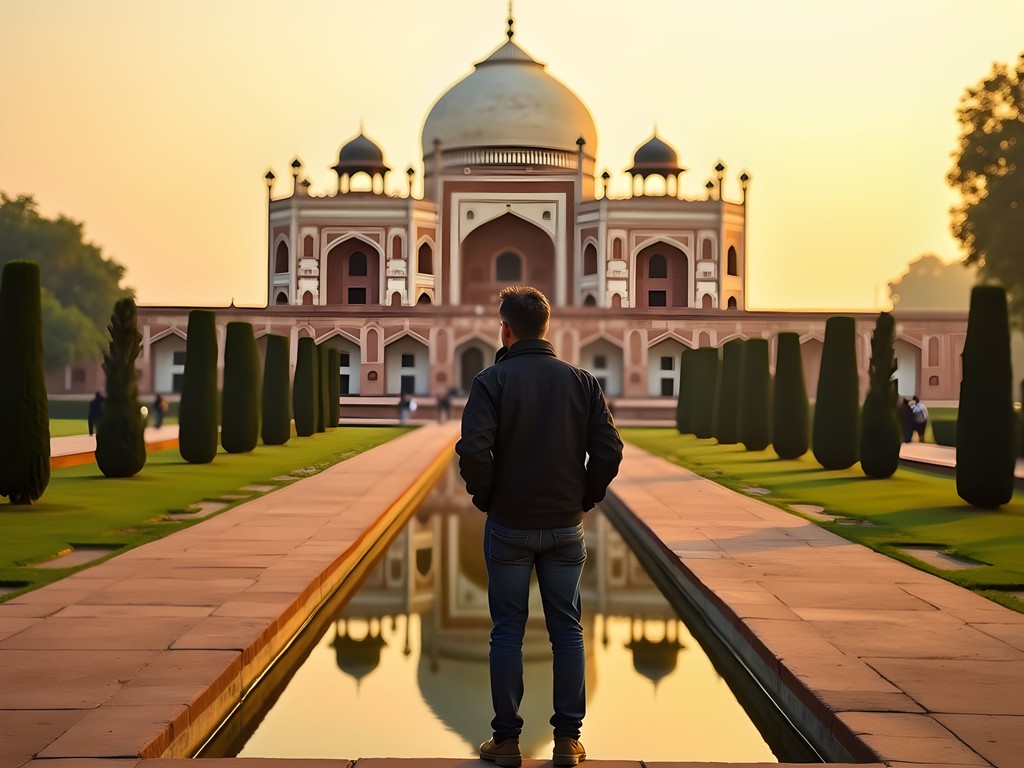
💡 Pro Tips
- Schedule cultural activities for early mornings (6-8 AM) when monuments are less crowded and Delhi's light is most photogenic
- Consider a private guide from a reputable agency like India Someday for efficient cultural exploration between business commitments
- Visit Dilli Haat market for high-quality handicrafts from across India—perfect for meaningful client gifts that showcase cultural appreciation
Health Management for Peak Performance
Maintaining peak cognitive and physical performance during Delhi business trips requires deliberate health strategies. The combination of climate challenges, air quality concerns, and potential digestive adjustments can undermine your effectiveness without proper management.
Air quality represents Delhi's most publicized health challenge. During winter months (November-February), particulate levels can reach concerning heights. Track daily Air Quality Index readings through apps like AirVisual, and consider limiting outdoor activities during severe episodes. For sensitive individuals, a portable air purifier for hotel rooms and car transfers provides significant protection.
Hydration demands constant attention, particularly during pre-monsoon months (April-June) when temperatures regularly exceed 40°C (104°F). I maintain a regimen of 4-5 liters daily during summer visits, primarily through bottled water. Electrolyte supplements help prevent the subtle cognitive deficits that dehydration induces before obvious symptoms appear.
Dietary adaptation requires strategic thinking. While Delhi's cuisine offers remarkable pleasures, abrupt changes can disrupt digestive equilibrium. I follow a gradual introduction approach: beginning with simpler preparations and international options before exploring more complex local dishes as my system adjusts. Most luxury hotels offer excellent continental options alongside Indian cuisine.
For those with sensitive systems, I recommend carrying prescription-strength antidiarrheal medication and probiotics as preventative measures. Consulting a travel medicine specialist before departure provides personalized recommendations based on your medical history.
Sleep quality faces multiple challenges including jet lag, noise, and schedule intensity. Consider melatonin supplements (where legally available) for circadian adjustment, and request rooms away from elevators and street noise. Quality sleep masks and earplugs provide additional defense against disruptions.
Exercise maintains both physical and mental resilience. Most business-class hotels feature excellent fitness facilities, though morning sessions are advisable during summer months when outdoor activities become challenging. I've found that maintaining 30-minute morning workouts provides energy that substantially outweighs the time investment.
Finally, mental health deserves equal attention. Delhi's intensity—sensory, social, and professional—can overwhelm even experienced travelers. Build deliberate decompression periods into your schedule, whether through meditation, brief nature connections in protected spaces like Lodhi Gardens, or simple moments of reflection.

💡 Pro Tips
- Schedule outdoor activities before 10 AM or after 6 PM during summer months to avoid peak heat
- Stick with bottled water exclusively, including for tooth brushing—quality hotels provide complimentary bottles
- Consider vegetarian options when dining out as they often present lower food safety risks while showcasing India's remarkable meat-free culinary traditions
Final Thoughts
Delhi demands more from business travelers than most global capitals—greater flexibility, deeper cultural awareness, and more robust health strategies. Yet it rewards these investments with unparalleled opportunities for both professional success and personal growth. As someone with paternal roots in India who has spent decades navigating international contexts, I've found that approaching Delhi with respectful curiosity rather than rigid expectations transforms challenges into advantages. The executives who thrive here are those who recognize that understanding Delhi's rhythms—from its business protocols to its historical narratives—creates tangible competitive advantages. Whether you're finalizing manufacturing partnerships or exploring emerging markets, Delhi offers a masterclass in balancing tradition with innovation. As you prepare for your journey to India's complex capital, remember that the most valuable business asset you can bring is an open mind tempered by strategic preparation.
✨ Key Takeaways
- Allow significantly more travel time between meetings than seems necessary—Delhi traffic follows patterns difficult for outsiders to predict
- Invest in relationship development before focusing on transaction details—personal connections precede business progress in Indian corporate culture
- Balance digital connectivity with physical documentation—India's business environment still values tangible credentials alongside digital efficiency
- Incorporate cultural exploration into your business schedule for both relationship building and personal perspective
📋 Practical Information
Best Time to Visit
October-March (avoiding summer heat and monsoon rains)
Budget Estimate
$500-800 per day (luxury accommodations, transportation, and meals)
Recommended Duration
Minimum 5 business days plus weekend extension
Difficulty Level
Intermediate

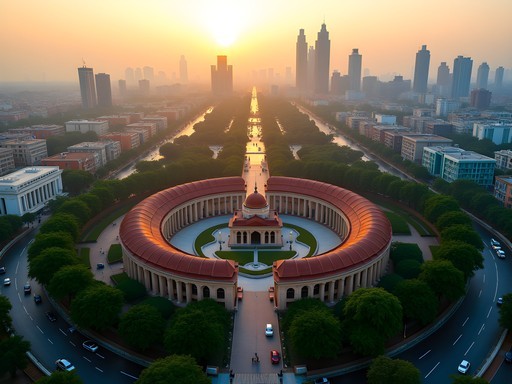
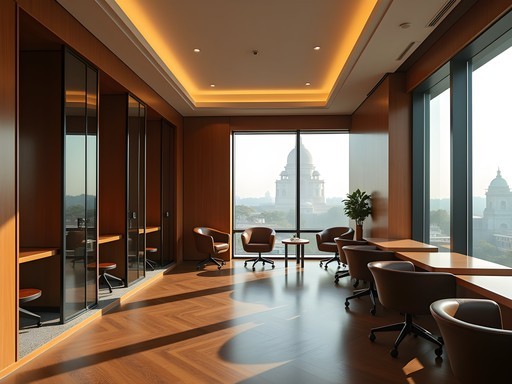






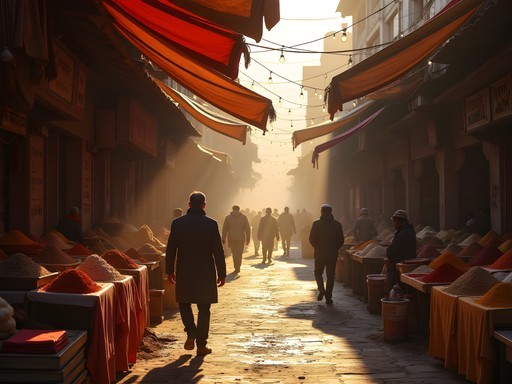
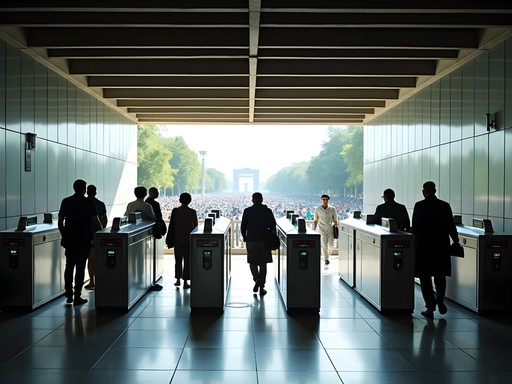

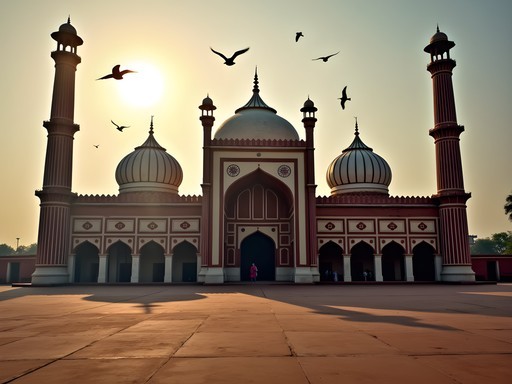

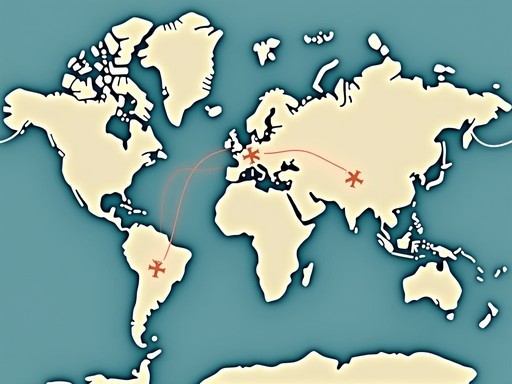


Comments
Fatima Sims
Amit, this is such a comprehensive guide! I'd add one thing about business meetings in Delhi that caught me off guard - the timing flexibility. Coming from Canada where meetings start precisely on schedule, I was initially frustrated when my 10am meetings would often start at 10:30 or later. Once I embraced the flow and stopped stressing about it, everything went much smoother. Also, for women executives traveling solo - I found dressing conservatively but confidently worked well. I'd wear pantsuits with a scarf and received much more professional treatment than when I dressed more casually. The Aerocity district near the airport was perfect for my shorter business trips - modern hotels and just 15-20 mins to most business districts (traffic permitting!).
coolbackpacker3744
The timing thing is really good to know! Did you find people were offended if you were running late too, or is it only acceptable for the locals?
Fatima Sims
Great question! I found it's still best to be punctual as a foreigner. The flexibility seems to apply more to the Indian side. I'd arrive on time but bring something to work on while waiting. Most appreciated my punctuality but weren't bothered if traffic delayed me a bit.
coolbackpacker3744
Great post! I'm heading to Delhi for my first business trip next month. Any tips on getting around between meetings? Is Uber reliable there or should I hire a driver?
Fatima Sims
I was in Delhi for a project last year and found Uber surprisingly reliable in the business districts! But for important meetings, I'd recommend arranging a driver through your hotel. The traffic is WILD and having someone who knows the shortcuts is worth every rupee.
coolbackpacker3744
Thanks Fatima! Good to know about Uber. Did you have any issues with connectivity for work calls?
Fatima Sims
The hotel WiFi was decent but I always carried my portable hotspot as backup. Saved me during a few critical calls when the hotel connection got spotty. And definitely download maps offline - Google Maps was my lifesaver navigating between meetings!
TechTravelerJP
Pro tip: download the Delhi Metro app. Saved me countless times when traffic jams would have made me late for meetings. The metro is surprisingly efficient and clean!
happyking
Any recommendations for reliable translators for business meetings? The language barrier was tougher than I expected even though many spoke English.
Amit Sullivan
I've had good experiences with Linguistix Services in Delhi - they specialize in business translation and can provide someone who understands industry-specific terminology. Will add this to the guide in my next update!
Bryce Diaz
Amit, this is exactly the kind of practical guide business travelers need. I've been to Delhi four times for work, and your assessment of the luxury accommodations is spot-on. The Leela Palace saved my sanity during a particularly hectic negotiation week - their business center staff practically became my temporary assistants. One tip I'd add for executives: invest in a good air purifier for your hotel room. Delhi's air quality can wreak havoc on your productivity, especially during winter months. I bring my travel-sized one and it makes a huge difference for sleep quality. Also worth mentioning that Aerocity has become my preferred location - proximity to both the airport and metro makes it perfect for mixed international/local meeting schedules. The Pullman there has exceptional meeting facilities if you need to host clients.
beachgal
Is Aerocity safe for solo female business travelers? Planning my first Delhi trip for a conference.
Bryce Diaz
Absolutely! It's one of the most secure areas with good lighting, security presence, and mostly business travelers. Just use standard precautions you would in any major city.
beachgal
Thanks! That's really helpful to know.
beachgal
The cultural intelligence section is gold! Wish I'd read this before my awkward business dinner last year 😂
happyking
Just got back from a business trip to Delhi last week and this guide would have saved me so many headaches! The part about navigating the business districts is spot on. I found Connaught Place incredibly confusing at first - the circular layout had me walking in circles between meetings. And the tip about keeping a portable hotspot is essential - my hotel WiFi was decent but conference venues were hit or miss. Would add that having a local contact who can translate cultural nuances during negotiations made all the difference for our deals.
Bryce Diaz
Did you try any of the private car services mentioned? I'm heading there next month and debating between using Uber or hiring a driver for the week.
happyking
Went with Uber for most trips but hired a driver for a full day when I had meetings across different districts. Way less stressful having someone who knows the traffic patterns. Worth the extra cost if you've got a packed schedule.
coolexplorer
Been doing business in Delhi for 7+ years now. One thing this article doesn't mention enough is the importance of air quality planning. If you're there between October-February, the pollution can seriously affect your productivity. Check AQI forecasts and consider booking hotels with air purifiers in the rooms. Also, schedule important meetings for afternoon rather than morning during winter months - pollution tends to be worse in the mornings.
dreammate
Don't forget to carry business cards! They're still very important there.
backpackmaster
Is the metro safe for business travelers? Seems like it would be faster than sitting in traffic but not sure if it's appropriate in business attire?
Amit Sullivan
The metro is actually quite clean, efficient and used by many professionals. There are even special women's compartments. Just avoid rush hours if possible!
Venture X
Premium card with 2X miles, $300 travel credit, Priority Pass